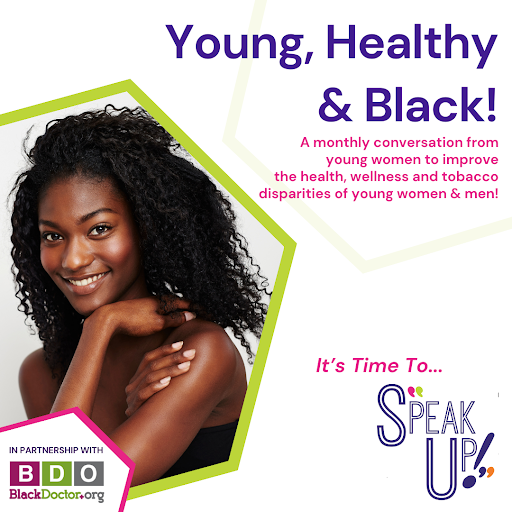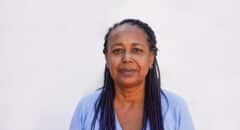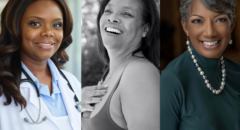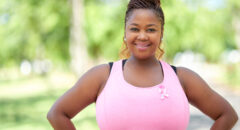
Hey, Lovelies, I'm sincerely happy you landed here! Whew! We have been watching, experiencing, and going through a lot these past couple of months. I now understand what the elders mean when they say, "If it ain't one thing, it's another." I hope you're taking care of yourself with everything happening in the world. As we all know, October is Breast Cancer Awareness month, so I wanted to focus on Black women and breast cancer. By the end of this, I want to encourage you to feel those tatas and encourage someone else you know to do the same. So, let's get into it!
Did You Know?
- In the United States, women have a 1 in 8 chance of being diagnosed with breast cancer.
- Black women are disproportionately affected by more aggressive subtypes of breast cancer.
- The mortality rate for Black women with breast cancer is 42% higher than that of white women
- Men can also be diagnosed with breast cancer
Cancer, But Not the Astrological Sign
I'm a nerd at my core, so it's time for a Biology 101 Lesson! The human body is impressive. The way that everything in our bodies starts as a cell, can regulate itself, and can identify a harmful invader is a thing of wonder.
However, sometimes, our bodies can work against us. Cancer is the overgrowth and overproduction of abnormal cells in the body. Most cancers are caused by changes to genes that control how our cells function, grow and divide.
Some of the genetic changes are caused by errors in cell division, damage from harmful substances in the environment, and sometimes we simply inherit them from our parents.
Breast Cancer
The breast is made up of three parts: lobules, ducts, and connective tissue. The lobules are the glands that produce milk, the ducts are tubes that carry milk to the nipple, and the connective tissue (fibrous and fatty tissue) holds everything together.
Breast cancer is when the cells in the breast grow abnormally. These cells then divide quicker than healthy cells and accumulate to form a lump. Most breast cancer begins in the ducts or lobules, spreading through blood vessels and lymph vessels.
When cancerous cells spread from the breast to the lymph nodes or other parts of the body, it is metastatic. Some risk factors for breast cancer are genetic mutations, family history of breast cancer, endocrine disruptors, lifestyle factors (i.e., diet, exercise, smoking), age, and race/ethnicity.
RELATED: Triple Negative Breast Cancer: What Black Women Need To Know
Breast Cancer Disparities
Black women bear the burden of being unevenly affected by breast cancer. Black women are more likely to be diagnosed with breast cancer before the age of 45 than white women, who are more likely to be diagnosed between the ages of 60 and 84. As a result of late-stage diagnoses, Black women are approximately 40% more likely to die from breast cancer at every age than white women.
Triple-negative breast Cancer (TNBC) is an aggressive and rare type of breast cancer that is highly likely to spread faster to other parts of the body and return after treatment. Because of this, the survival rates are low compared to other types of breast cancer. Black women are more than twice as likely to have a diagnosis of TNBC as white women and have higher mortality rates.
Black women and girls, it is crucial to know how your normal breasts look and feel. See a licensed medical provider immediately if you notice or experience any of the symptoms below. If you are over 40 or have a family history of breast cancer, GET YOUR MAMMOGRAMS!
Symptoms of Breast Cancer
- Thickening or swelling of all or part of the breast
- New lump in the breast or underarm
- Irritation or dimpling of breast skin
- Breast or nipple pain
- Nipple or breast irritation
- Nipple discharge
- Nipple retraction (going inward)
- Redness or flaky skin in the nipple area or breast
Check Those Tatas, How to Do a Breast Self-Exam
Using your left hand, move the pads of three fingers around your right breast. Be sure to use different pressure levels while checking the entire breast for any new lumps, hardened knots, or any new changes. Check your nipples for any changes and squeeze them to check for discharge.
Closing
To anyone with breast cancer or who has loved someone with breast cancer, you have my heart. Throughout this fight, you are never alone. So many women are praying for and holding you up as you fight this arduous battle. I hope you are surrounded by unwavering love, support, and hope on your darkest days.
Ladies, check those tatas and tell all your girls to check theirs. I need you here for a long time so we can all have a good time. Always put yourself and your healing first. Please take care of yourself always in all ways.
If topics on health and wellness are your thing, be on the lookout for more articles from "SPEAK UP!" interns. If you are or know of any Black college-aged and enrolled women interested in the health and wellness of Black students on HBCU campuses, please visit Save a Girl Save a World for more information.
Resources
Aravia Patterson, MPH is a 27-year-old SAGSAW/SPEAK Up! Intern and Ph.D. Student at the University of Louisville studying Health Promotion and Behavioral Sciences.









